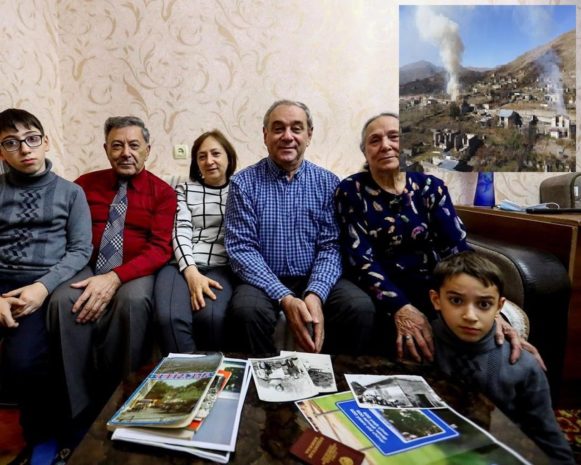
Azerbaijanis who fled during first war with Armenia look to return home
PTI, Nov 22, 2020, 7:20 PM IST

Baku: As Azerbaijan regains control of land it lost to Armenian forces a quarter-century ago, civilians who fled the fighting decades ago wonder if they can go back home now — and if there’s still a home to go back to.
An estimated 600,000 Azerbaijanis were displaced in the 1990s war that left the Nagorno-Karabakh region under the control of ethnic Armenian separatists and large adjacent territories in Armenia’s hands.
During six weeks of renewed fighting this fall that ended November 10, Azerbaijan took back parts of Nagorno-Karabakh itself and sizeable swaths of the outlying areas.
More territory is being returned as part of the ceasefire agreement that stopped the latest fighting. But as Azerbaijani forces discovered when the first area, Aghdam, was turned over on Friday, much of the recovered land is uninhabitable.
The city of Aghdam, where 50,000 people once lived, is now a shattered ruin.
Adil Sharifov, 62, who left his hometown in 1992 during the first war and lives in Azerbaijan’s capital, Baku, knows he will find similar devastation if he returns to the city of Jabrayil, which he longs to do.
Jabrayil is one of the outlying areas regained by Azerbaijani troops before the recent fighting ended. Soon after it was taken, one of Sharifov’s cousins went there and told him the city was destroyed, including the large house with an orchard where Sharifov’s family once lived.
Nonetheless, “the day when I return there will be the greatest happiness for me,” he said.
For years, he said, his family had followed reports about Jabrayil on the internet. They knew the destruction was terrible, but Sharifov’s late mother retained a desperate hope that their house had been spared and held on to the keys.
“I will build an even better house,” he vowed.
Ulviya Jumayeva, 50, can go back to better, though not ideal circumstances in her native Shusha, a city that Azerbaijani forces took in the key offensive of the six-week war.
Her younger brother, Nasimi, took part in the battle and phoned to tell her the apartment their family fled in 1992 was intact, though mostly stripped of the family’s possessions.
“According to him, it is clear that Armenians lived there after us, and then they took everything away. But our large mirror in the hallway, which we loved to look at as children, remains,” Jumayeva said, adding: “Maybe my grandchildren will look in this mirror.”
“We all have houses in Baku, but everyone considered them to be not permanent because all these years we lived in the hope that we would return to Shusha,” she said. “Our hearts, our thoughts have always been in our hometown.”
But she acknowledged that her feelings toward Armenians have become more bitter.
“My school friends were mostly Armenian. I never treated ordinary Armenians badly, believing that their criminal leaders who unleashed the war were to blame for the massacre, war, and grief that they brought to their people as well,” Jumayeva said.
Udayavani is now on Telegram. Click here to join our channel and stay updated with the latest news.
Top News

Related Articles More

India & Kuwait elevate ties to strategic level; ink defence pact after PM Modi meets top Kuwaiti leaders

In Kuwait, PM Modi meets yoga practitioner, other influencers from Gulf country

PM Modi receives Kuwait’s highest honour

PM Modi in Kuwait meets translator, publisher of Mahabharata, Ramayana in Arabic

Indian manpower, skills will help build ‘New Kuwait’: PM Modi
MUST WATCH
Latest Additions

Lohia Auto launches EV brand ‘Youdha’, aims to sell 3 lakh vehicles by 2027

Rewind 2024: A year of turbulence – Mirabai and Indian weightlifting’s unfulfilled dreams

I never liked dubbed English films: Sanjay Mishra

TTD sub-temple in Tarigonda receives golden crown donation

Murder accused hurls slipper at judge in Thane court; booked
Thanks for visiting Udayavani
You seem to have an Ad Blocker on.
To continue reading, please turn it off or whitelist Udayavani.





















